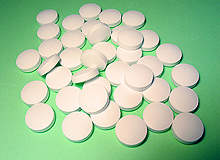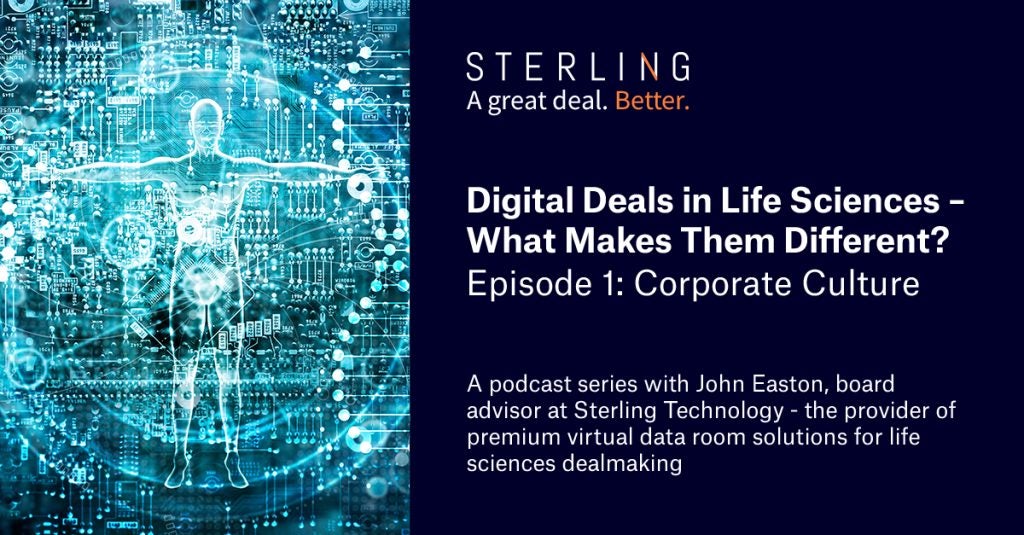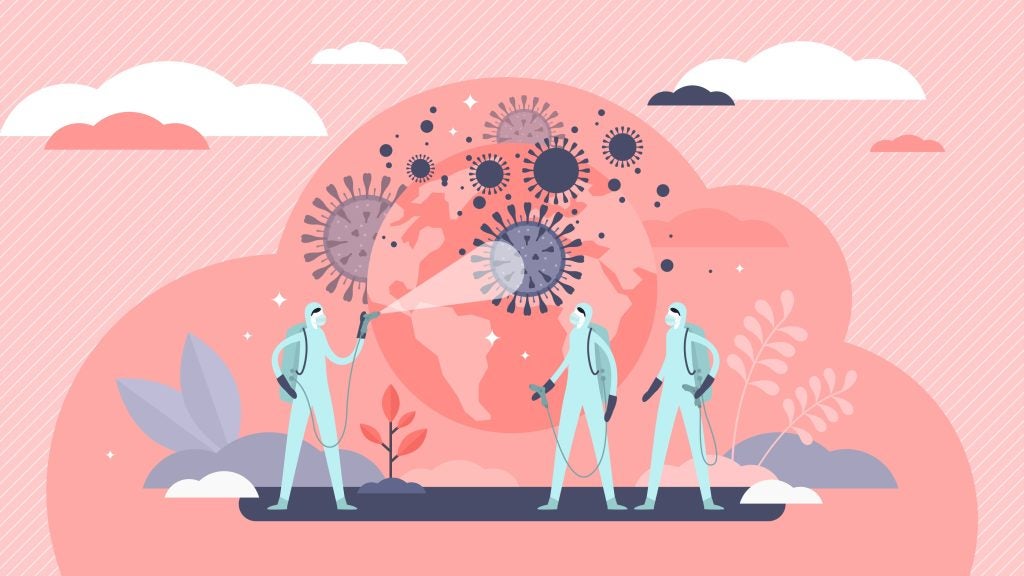
Taking medication is a matter of trust. When taking a pill or agreeing to an injection, patients are implicitly placing their trust not only in the research that has gone into the product’s development, but also the wider system that delivers that product from the manufacturer all the way to the treatment site.
The insidious rise of medical counterfeiting is throwing this delicate system of trust into disarray. Fuelled in part by the increased sophistication of the internet as an enabling technology, the global counterfeit drugs trade is more pervasive than ever. The Center for Medicine in the Public Interest, a US-based medical research group, has predicted that worldwide sales of counterfeit medicines will reach $75bn this year – a 90% surge from 2005.
Counterfeit drugs cover a wide range of conventional medication. Although some manage to replicate the medical effects of the legitimate product, many do not. Fake medicines may include insufficient or inflated quantities of active ingredient, or none at all. They may also be contaminated with dangerous toxins.
The deadly effects of illegitimate medicines have been demonstrated dozens of times around the world. Although the counterfeit drug problem is most pronounced in developing countries, the 2007-08 case of contaminated heparin that was linked to 81 deaths worldwide, including in Europe and the US, serves as a stark reminder that counterfeiting is a global problem that requires a global solution.
The dearth of data
See Also:
Although the global counterfeit drugs trade is clearly a serious problem, one of the main difficulties for health organisations is the lack of reliable information about this secret world. Estimates concerning the extent of the problem suggest that up to 10% of global pharmaceutical sales may be counterfeit, a figure that rises to 30% in certain developing countries, but most experts agree that without more united research, figures are little more than educated guesswork.
How well do you really know your competitors?
Access the most comprehensive Company Profiles on the market, powered by GlobalData. Save hours of research. Gain competitive edge.

Thank you!
Your download email will arrive shortly
Not ready to buy yet? Download a free sample
We are confident about the unique quality of our Company Profiles. However, we want you to make the most beneficial decision for your business, so we offer a free sample that you can download by submitting the below form
By GlobalDataDr Sabine Kopp is at the forefront of the effort to reduce counterfeiting in the pharmaceutical industry. She is the manager of the Anti-Counterfeiting and Medicines Quality Assurance Programmes at the World Health Organization (WHO), and the interim executive secretary for the WHO’s International Medical Products Anti-Counterfeiting Taskforce (IMPACT).
Kopp confirms that although the WHO is a global authority on the subject, there are no officially accepted WHO figures for counterfeit drugs, only "guesstimates".
There are a variety of reasons for the scarcity of information: from an investigative standpoint, releasing comprehensive data on ongoing counterfeiting cases is sometimes thought to be detrimental to a process that depends on keeping one step ahead of extremely cautious and well-organised criminal networks.
For some manufacturers and national bodies, however, the prospect of damaging brand reputation or national prestige can hamper the open sharing of information.
"There may be certain countries or national authorities which do not necessarily want to come out with the information that they have had occurrences of counterfeits," says Kopp. "We feel it’s just the contrary. If you have detected cases of counterfeiting, the system works."
Anti-counterfeiting strategies
The WHO plays a support role in the fight against counterfeiting, providing support and guidelines to empower national regulatory agencies so that they can tackle counterfeiting more effectively in their own national markets. The WHO also organises events to encourage open networking between regulators, politicians, law enforcement agencies and health professionals on the topic of counterfeit medicines.
Another significant part of the WHO’s anti-counterfeiting strategy is IMPACT, a taskforce that brings together industry, regulatory and police collaborators from around the world in an international think tank. IMPACT is split into five working groups, addressing legislative and regulatory infrastructure, implementation, enforcement, technology and communication.
Many commentators recognise the importance of identifying and developing appropriate anti-counterfeiting technologies, especially when attempting to tighten security in the pharmaceutical supply chain. Experts are debating the merits and drawbacks of systems like radio-frequency identification tags and 2D data-matrix barcoding to track and identify products throughout the supply chain and make it more difficult for counterfeiters to infiltrate the market. The protection of the global supply chain is another cross-border issue that would be most effectively tackled with a unified international effort to create a standardised, transparent system.
Kopp says that any technologies adopted will need to have the inbuilt flexibility to constantly adapt to the skill and determination of international counterfeiters.
"Any mechanism that is developed needs to have enough technical flexibility to change frequently," she says, "or have certain mechanisms in place that makes copying of the security tools very difficult." She also stresses the importance of being able to trace medical products in both directions, up and down the supply line, "so that you can go back to the originator and down to the patient".
The industry’s role
Given the ongoing impact of counterfeiting on the legitimate pharmaceutical industry, private companies have a vested interest in contributing to anti-counterfeiting efforts. Kopp says the role of manufacturers is particularly important in the case of the pharmaceuticals industry "because for the unique identification of counterfeit medicines, it is thought that it can only be done by the original manufacturer, be it a generic or research-based industry manufacturer".
As there are no recognised legal requirements for manufacturers when it comes to combating counterfeiting, commitment could vary significantly from company to company. GlaxoSmithKline and Pfizer have declared well-defined, proactive anti-counterfeiting programmes, with GlaxoSmithKline leading a number of undercover operations in China in 2009.
One of the company’s successes was seen in Shenzhen, where a GlaxoSmithKline operation led to a raid by Chinese authorities with the arrest of three counterfeiters and the seizure of 75,000 counterfeit tablets of the antibiotic Zinnat that would otherwise have been sent to Africa and the Middle East. But while some companies are setting a fine example for anti-counterfeiting policy, it is feared that others have less impressive records.
At the heart of the industry’s response to counterfeit drugs is the Pharmaceutical Security Institute (PSI). The not-for-profit organisation was established in 2002 by 14 major pharmaceutical companies to collect data on medical counterfeiting and help co-ordinate the industry’s anti-counterfeiting programmes. PSI uses data from member companies to provide training and briefings for law enforcement and regulatory agencies, but has been criticised for restricting access to its database as a whole, which some believe would greatly contribute to raising awareness and making anti-counterfeiting operations more open.
Developing challenges
Counterfeit drugs are most pervasive in countries where poverty creates a demand for cheap medication and regulatory bodies do not have the funding to develop comprehensive quality control laws and enforcement. This contributes to shocking drug failure rates (the proportion of a particular medicine that fails, usually through a lack of active ingredient). A 2008 peer-reviewed study revealed that in some African countries, such as Ghana, Kenya and Rwanda, failure rates reached well over 30%.
Kopp says that in developing countries, the entire international system needs to co-ordinate to reach higher standards, especially when supporting small clinics in remote areas struggling to balance cost-effective procurement with appropriate medical standards.
Multilateral co-operation and the open exchange of information are vital to ensure that patients in developing countries are treated with quality medicines. "There are all sorts of mechanisms that can be employed," Kopp says. "You can join forces, there can be joint procurement actions, but information is important. It’s very important to know which products are of good quality, to have reliable manufacturers and procurement agencies. It shouldn’t be just the hospital, it should be the whole system that should help to ensure that patients get the treatment they need with quality medicines."
Currently, regulators and the pharmaceutical industry are locked in a secret conflict with medical counterfeiters. As long as national health authorities and private companies believe they have more to lose from releasing information than from withholding it, the extent of the problem will remain shrouded. Considering the importance of data when fighting an underground industry that thrives on secrecy, co-operation and transparency might be the key to dragging this shadowy issue to light.





